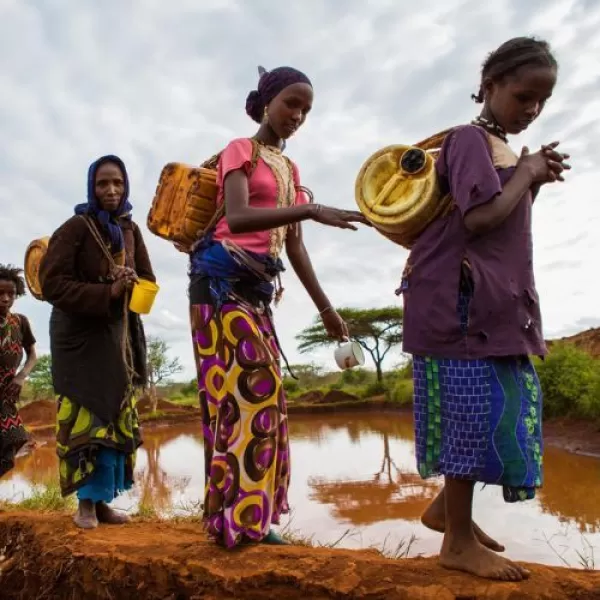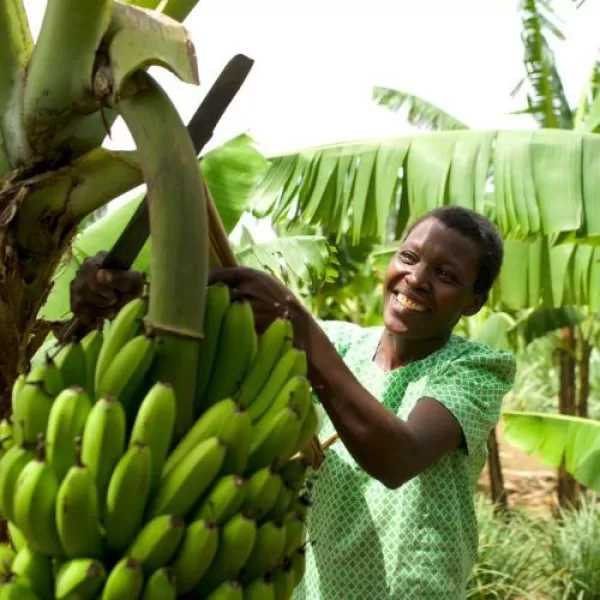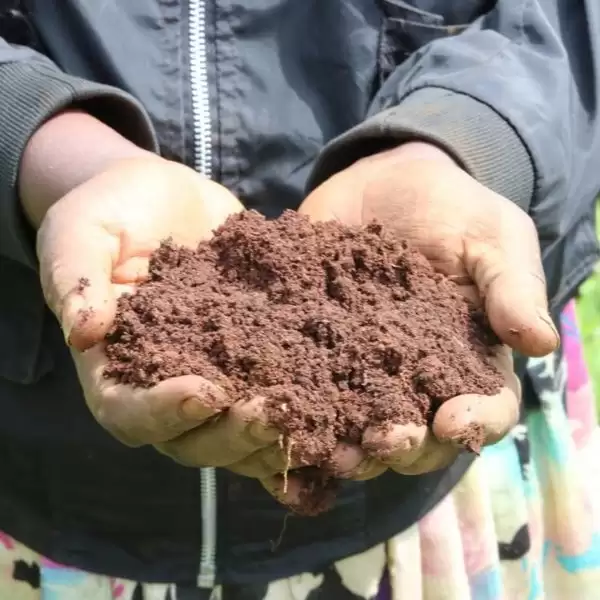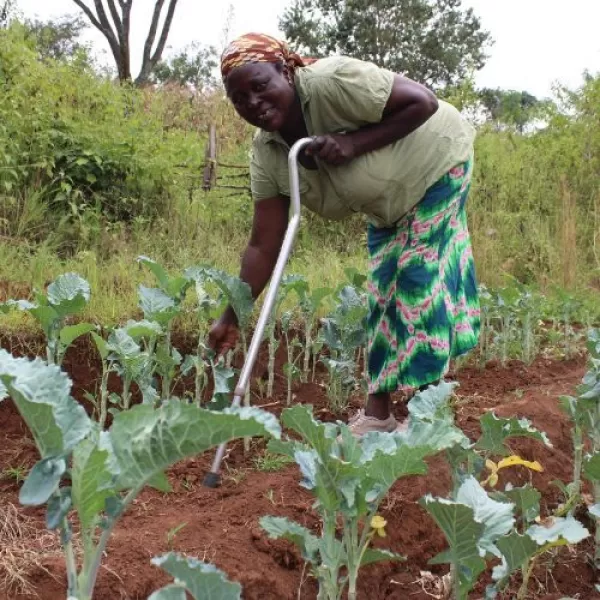Gender and Social Inclusion
We are committed to achieving food security, for everyone. Inclusion is embedded in our programme structure and policies to ensure everyone has access to food, education, and opportunities to ern an income.
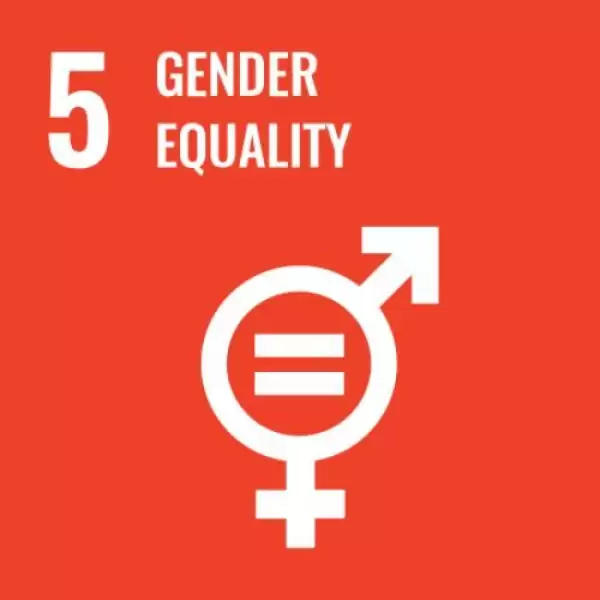
We are working towards the Gender Equality Sustainable Development Goal
In the communities where we work unequal gender roles are deeply embedded. Women are less likely to be educated, they have fewer opportunities to earn money and less say in what crops are grown or how the family’s money is spent.
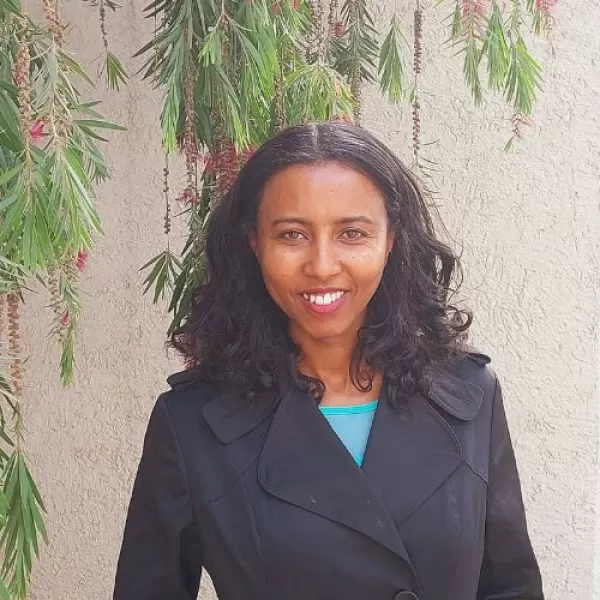
“People are the centre of our work – not land, not agribusiness. Everyone must be included, and the benefits must be for everyone, if our work is to be effective.”
Sofanit Mesfin
Gender and Social Inclusion Coordinator
What we do to achieve gender equity
The unequal burden of household tasks for many rural African women begins with girls who are required to collect water and firewood, and prepare food, while they brothers do school homework.
We actively seek out women to join our self-help groups and choose women to be peer farmer trainers so they can be positive role models and have more influence in their communities.
We have developed a highly effect process that challenges traditional gender roles in individual households, and communities, and encourages change. Our Transformative Household Methodology demonstrates clearly the imbalances of workloads and decision-making, and inspires everyone in a family to share tasks and responsibilities – resulting in greater collaboration, respect and productivity.
Climate crisis is a women’s issue
How our gender work has worked for Caroline’s family
Caroline and her husband Simon Omugogo live in Alupe, western Kenya.
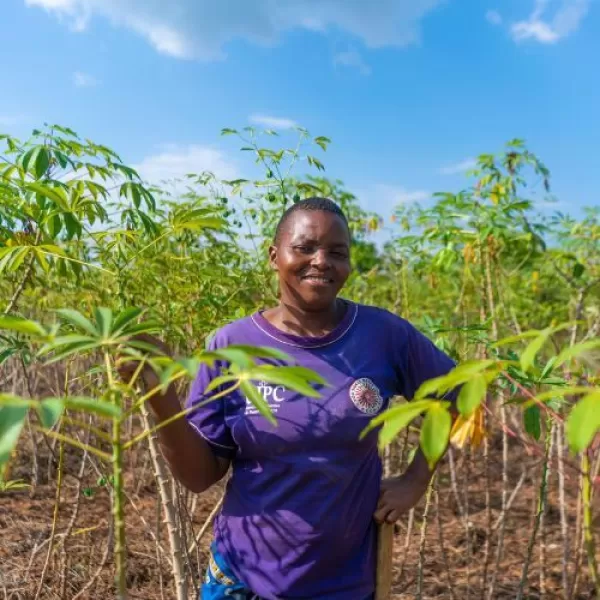
“Before, we had lack of food, lack of money and no peace in the homestead. My husband did not support the family and his money belonged to him alone. “We are now applying our training in our marriage and our life. My husband and children all contribute to the work, and in the evenings we decide on what is to be achieved by when, as a family.
Caroline, Farmer, Kenya
How we include people with disabilities
Social stigma about disabilities creates barriers to education which in turn affects employability, financial security and food security.
People with disabilities are often the “invisible people” in communities: hidden away, excluded from community life and decision-making and unable to contribute. Their emotional wellbeing suffers.
We actively seek out disabled people in communities and recruit them to all our projects. We use the ACAP framework to address barriers to inclusion, which may include adapting pathways around villages and fields, improving access to community facilities, and creating mixed groups of disabled and able-bodied participants.
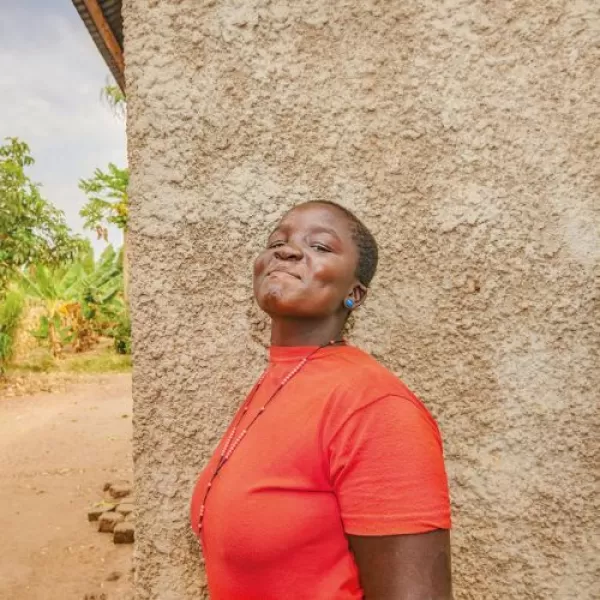
“Children used to laugh at me, but now everyone loves Viola.”
Viola from Buyende, Uganda, has been trained in disability rights and sustainable agriculture.
How we include young people in our work
In rural communities it’s easy for young people to be excluded from targeted programme interventions because they are not land owners, or the head of the household, or the person who has responsibility for feeding the family.
We engage with young people to ensure that their energy and productivity is not lost by focusing on real work opportunities in the areas of work that interest them. We develop employment and business skills, and enrol them in apprenticeship schemes.
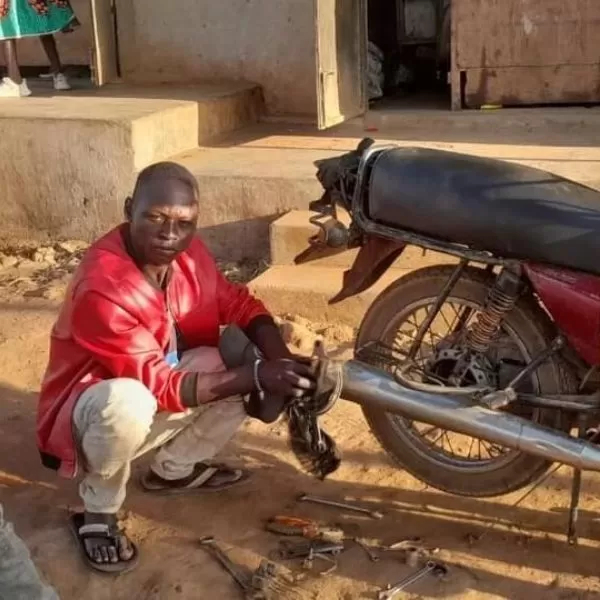
“Life was bad for me before I did this training. Now I like everything about my life.”
Batte, then 18, at his motorbike repair shop, Kyotera, Uganda
Sign up to hear more
Want to hear good news stories from Africa, get involved in fantastic fundraising and be part of exciting events? Fill out your details below and we will keep you updated by email.
By providing your email address above, you are confirming that you are happy for Ripple Effect to contact you by email. We will use your email to let you know about news, events, fundraising and appeals. We will never sell or trade your details. Read more about how we value your privacy. You can unsubscribe at any time by emailing info@rippleeffect.org or by clicking the unsubscribe link in any email we send.

